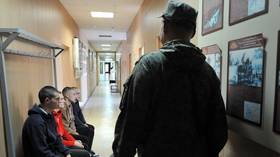Nanotechnology gets boost from state as focus turns to future
A week with focus on nanotechnology and Russian science has seen Rosnano, and AFK Sistema announce they will invest half a billion dollars in the production of microchips, using 90 nanometers technology.
Russia's government is determined to move the country away from its dependence on export of mineral resources, and the route seems to be through the tricky field of nano-technologies. President Medvedev says the government is looking to lead the way and create a positive investment environment for the private sector.
“Private companies are quite passive about nanotechnology. Some clearly don’t have the money for research, however big companies are not showing any interest either. So the governments aim is to encourage interest amongst companies big and small, to invest in nanotechnology.”
Russia will invest more than ten billion dollars in the tiny particles. With the President Medvedev himself pushing for changes, and attending the nano forum, foreign investors seem sure nano story can be a success.
Dmitri Konash, Regional Director from Intel Russia and the CIS, says the development of a technology cluster in Moscow, is a positive step.
“You cannot do any serious research in the nanotechnology area without doing modeling first using supercomputers. The Moscow state university cluster, which is being built as we speak is the largest out of the new clusters installed in Europe.”
Dr. Sergey Kravchenko, President, Boeing Russia and the CIS, says nanotechnology will help Russia keep at the forefront of the aerospace industry.
“Nanotechnology is one of the drivers to develop the new generation aerospace titanium alloys, and aerospace composites. We are obviously interested in everything that touches high technology. And I would say that with $27 billion of long term investment programme, that we have in Russia, that we have the largest high technology investment in Russia.”
The nano market may look lucrative, and sound promising, but still the science-driven sector is very risky, according to Harry Fitzgibbons, Managing director, Top Technology Ventures.
“What nano has to be careful of is that they don’t put a lot of money into scientists who are just always going to be in the laboratory. You’ve got to get scientists who really aren’t happy unless they’re seeing their technologies put to economic use."
Some analysts argue that instead of putting public money at risk the state could have done more by modernizing the patent laws, and increasing funding in universities. In the long run that could naturally result in a revival of Russia's struggling science sector.












